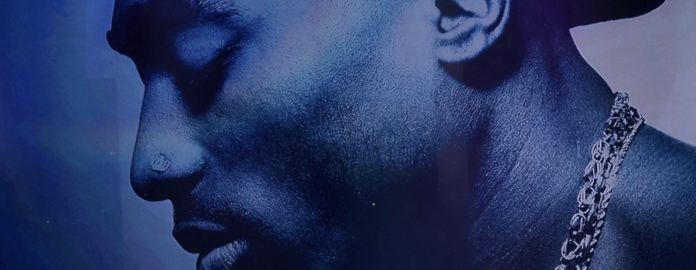Tupac Shakur was the Los Angeles rapper who was killed in 1996. He finally received his star at the Hollywood Walk of Fame this month.
Rap music’s glorifications of violence, drugs, bitches and money have finally been acknowledged by American society. The rap music has become a part of our everyday culture.
Tupac is one of today’s most influential rappers. He remains one of history’s best-selling artists. His first album, “2Pacalypse now”, which he released as the son a Black Panther revolutionary, was a huge success. It dealt with issues of police brutality and black identity, themes that are prevalent in the media today. The lyrics of the song “Trapped,” which reflect his perspective on black life, read: “Tired to be trapped in this vicious circle; If one cop harasses, I might just go psycho.”
The lyric suggests that a power structure amorphous is holding black people back in America, and that their treatment justifies violent reactions. This is an early version of the Black Lives Matter motto “No Justice, No Peace.”
Later albums, as his fame grew, embraced the hedonism of the rich and famous life, often expressed in vulgar lyrics. In the song “How Do U Wann It”, there are lines such as “All I Want is Money, Fuck the Fame” and “Love the way you activated your hips and pushed your ass out.” . . “I’m about to pass out from wanting it so badly.”
His lyrics and actions made him controversial despite his fame. He was not only charged with shooting cops but also rapping about it. Feminists criticized his way of speaking about women. Then Vice President Dan Quayle criticised the ways that his music glorified violent acts.
C. DeLores Tucker, a feminist and civil rights activist, was perhaps his most prominent critic. Tucker spent a lot of her youth organizing and marching alongside Martin Luther King Jr. She founded the MLK Association for Non-Violence. By the time she began her “crusade”, against violent “porno-rap” in 1990, she was already the leader of the National Political Congress of Black Women. Her mission sparked a series of lawsuits, counter-suits, and other legal actions between her and Tupac’s label Death Row Records.
She was unrelenting in her attack on the “gangsta” rappers, asking, “What would Dr. King have said about rappers calling women of color whores and bitches? Rappers glorifying drug dealers, thugs, and rapists. What role models do those in the ghetto provide for children?
Tucker is right, but her message was largely forgotten. You could be forgiven if you read the lyrics and didn’t find anything offensive. According to today’s standards, both in terms of vulgarity and political radicalism, they are quite mild.
Today, lewdness and lasciviousness are the norm. They’re even ideal. Pornographic curriculum is taught to children all across the nation, and anyone who disagrees risks being labeled a domestic terrorist by the federal government. Billboard’s Top 100 chart is currently dominated by a song called “Pound Town,” in which a woman named Sexyy Red raps about her genitalia. Last week, during an event honoring the “bravest, most inspirational people I have ever known,” a man with surgically altered breasts shook the bare, false breasts on White House’s lawn.
Tupac’s message, once controversial on the social-political level, is now accepted at the highest levels in society. According to some, the American way of life and system is so riddled with racism that a “systemic” change would be necessary. This idea is not just uncontroversial but widely accepted.
The rap genre has spread to the music and entertainment industries. It has been the subject of best-selling books and is on reading lists for schools and businesses across the nation. Fortune 500 companies that do not fight systemic racism will be out of business. Biden wants to reshape federal government to pursue “racial equality.”
Tupac’s star in the Walk of Fame acknowledges this fact. Tupac’s hedonistic view of the good life and his antagonistic view of progress in racial issues have prevailed. Not only are they common in the rap scene, but also throughout American society.
The original civil rights spirit, which saw progress as incremental and dignity-filled, is no longer tolerated. The traditional view of virtue, morality and duty as the foundations of a good life is now seen as outdated, backwards and perhaps even racist. This generation would be against a complete overhaul of American society, as their cause was based on the founding principles. It is now views such as Tucker’s, and not Tupac, that are controversial. She would be branded as a “blackface of white supremacy” by the media today.
Tupac’s legacy has changed America for the better.










